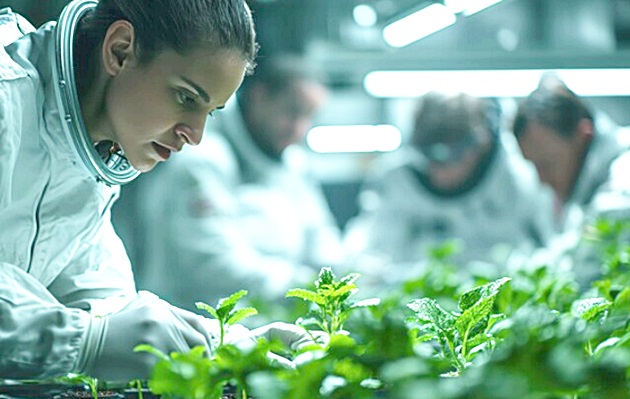813

The EU Green Deal Hinges on Sustainable Agriculture – and Biocontrol Is Key
According to a study published by Euractiv, the European Green Deal’s core objectives revolve around building resilient and sustainable food systems. Yet, outdated policies stand in the way. It is time to align policy with science and market realities — and at Koppert, we are ready.
The Promise of Biocontrol: Safe, Effective, and Economically Viable
As the EU renews its ambitions under the Farm to Fork Strategy and the European Green Deal, the urgency of building resilient, sustainable agri-food systems has never been greater. For years, the agricultural and horticultural sectors have been at the heart of this transformation.
At the core of this transition lies a powerful yet underutilized tool: biocontrol — the use of beneficial organisms to manage agricultural pests and diseases. As a global leader in biological crop protection and pollination, Koppert envisions a future where biocontrol is not an alternative, but a cornerstone of modern agriculture.
Biocontrol Is Not a Niche Solution
Biocontrol is a science-backed, ecologically sound, and increasingly cost-effective method of crop protection. It works with nature, not against it — using living organisms like beneficial insects, fungi, and bacteria to protect crops without harming pollinators or leaving toxic residues in the environment.
This approach reduces dependence on synthetic pesticides, improves soil health, and supports pollinator populations — all key pillars of the EU’s sustainability agenda, including the goal to cut pesticide use by 50% by 2030.
While upfront costs may be higher than conventional pesticides, the long-term benefits — reduced resistance, healthier ecosystems, and improved farm resilience — lead to greater profitability and sustainability.
At the same time, consumer demand for pesticide-free, sustainably grown food is rising, opening new market opportunities for growers who adopt biocontrol strategies.
The Elephant in the Room: A Regulatory System That Blocks Innovation
Despite its benefits, biocontrol products are currently regulated under outdated EU legislation — effectively treated like synthetic chemical pesticides under a regulatory framework dating back to the early 2000s.
This leads to disproportionate data requirements, lengthy approval times (6 to 8 years on average), and a lack of dedicated evaluation pathways. It creates an uneven playing field and discourages innovation.
This is not just a bureaucratic misalignment — it’s a strategic risk. Farmers and growers across Europe are being denied access to safer, science-driven tools. Meanwhile, innovators lack the regulatory certainty and return on investment needed to bring these solutions to market.
Koppert's Call for Pragmatic Regulatory Reform
Koppert has long advocated for a fit-for-purpose framework. We call for:
- A clear, science-based, and innovation-friendly definition of biocontrol
- A dedicated bioprotection unit within EFSA
- Fast-track approvals for low-risk products
- Data requirements that are adapted to the unique nature of biological solutions
These are not radical ideas. They are pragmatic steps toward aligning policy with science and the market — and delivering on the EU’s own sustainability targets.
While the European Commission has acknowledged the need for reform, progress has been slow, and political polarization threatens to stall momentum. The months ahead will determine whether biocontrol becomes mainstream — or remains a niche exception in a system built for yesterday.
Innovation Needs Partnership
This is where companies like Koppert come in — not as lobbyists, but as partners in innovation. For over 50 years, Koppert has pioneered biological solutions for crop protection and pollination. Our products are used in more than 100 countries, from high-tech greenhouses in the Netherlands to open-field farms in Spain and Italy.
What sets us apart is our science-first, farmer-centric approach. We collaborate with nature, and with growers — investing heavily in R&D, partnering with universities, and providing training to ensure biocontrol is used effectively and responsibly.
We don’t just sell products. We help build resilient agro-ecosystems.
We Cannot Innovate in a Policy Vacuum
Without regulatory reform, the pace of progress will remain too slow to meet the EU’s climate and biodiversity goals. That’s why Koppert calls for urgent action: a regulatory framework that reflects the low-risk nature of biocontrol, encourages innovation, and empowers farmers and growers with safe, effective alternatives.
Biocontrol is not the future. It is the present, ready to scale — if we choose to support it.




